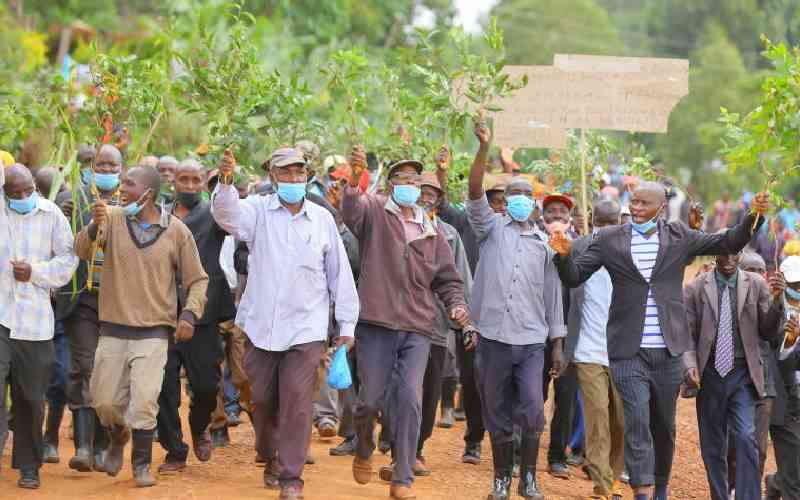Kenya will be hosting the African Peer Review Mechanism (APRM) meeting next week. APRM was formed in 2003 after the African Union (AU) resolved that African states should formulate a unique mechanism that could help them review progress made in the political management of individual African countries periodically.
Thus, it is a self-evaluation mechanism that shines its spotlight on four key areas of governance; the practice of democracy, economic governance, corporate governance and social-economic development. Unfortunately, there is little enthusiasm for APRM with only 35 out of 54 countries having joined it and even among member states; some have been reluctant to submit their reports, making it difficult to get an accurate assessment of their progress. In June this year while in South Africa, President Kenyatta called for the revitalisation of the APRM, having taken cognisance of its slowed momentum.
Many African countries have made strides in embracing democracy and good political management but the progress is still below par by acceptable standards. Democracy and what it espouses are still being frowned upon, especially in countries like Burundi, Uganda and Rwanda, where the constitutions have been altered without recourse to referendums merely to accommodate the interests of a few individuals. In South Sudan, citizens must be wondering why they fought so hard to get independence from Sudan when all that autonomy has caused them is so much pain and suffering. Clearly, the leaders of South Sudan don't believe in the rule of law and would rather massacre their own people to stay in power.
Poor human rights and the freedom of the media stick out like sore thumbs across Africa. Egypt, for instance, has for the second time sent journalist to jail for reasons that show disdain for members of the fourth estate. Media freedom in Uganda, Burundi, Gambia, Cameroon, South Africa, Zimbabwe and Egypt, among others, only goes as far as authorities in those countries permit while in Kenya the Government has on several occasions come up with legislation that seeks to muzzle press freedom and the right of citizens to information.
Dalliance with China may have contributed greatly to Africa rising because no doubt, since the 2008 economic crisis, the economies of many countries are doing well. This can in part be attributed to trading with China, which imports a lot of goods from Africa. The growth in the economies has been steady but citizens are yet to feel the positive effects because of poor fiscal policies that foster corruption. The Africa rising dream might be shattered with the recent two percentage point devaluation of the Chinese Yen that has caused so many jitters in the western world. The general feeling is that China is unfairly trying to undercut the competition. A few African countries might benefit from cheap Chinese imports following the devaluation of the Yen in the short term, but what are the long term implications on the local industry?
Poverty levels remain high. These can only be tackled effectively through the promotion of good governance, democracy, peaceful coexistence, adequate security and the development of human resources. While addressing Ghana's parliament in 2009, President Obama said: "Governments that respect the will of their people, that govern by consent, not coercion, are more prosperous, they are more stable and more successful than governments that do not."
Next week's APRM meeting should operate from this premise.
 The Standard Group Plc is a multi-media organization with investments in media
platforms spanning newspaper print operations, television, radio broadcasting,
digital and online services. The Standard Group is recognized as a leading
multi-media house in Kenya with a key influence in matters of national and
international interest.
The Standard Group Plc is a multi-media organization with investments in media
platforms spanning newspaper print operations, television, radio broadcasting,
digital and online services. The Standard Group is recognized as a leading
multi-media house in Kenya with a key influence in matters of national and
international interest.
 The Standard Group Plc is a multi-media organization with investments in media
platforms spanning newspaper print operations, television, radio broadcasting,
digital and online services. The Standard Group is recognized as a leading
multi-media house in Kenya with a key influence in matters of national and
international interest.
The Standard Group Plc is a multi-media organization with investments in media
platforms spanning newspaper print operations, television, radio broadcasting,
digital and online services. The Standard Group is recognized as a leading
multi-media house in Kenya with a key influence in matters of national and
international interest.









